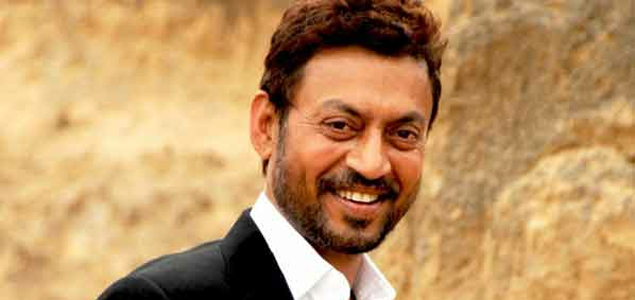Abu Dhabi, Nov 12 (IANS) Indian cinema needs to speak a universal language and change the world’s perception about Bollywood being an “item number”, says Irrfan, who has been in the news for his work in the highly acclaimed low-budget film “The Lunchbox”.
“We cannot continue being known as item number filmmakers. Bollywood is known as an item number, and we have to change that. We have to connect with a universal audience in a way that they think that there is some interesting kind of cinema coming out of India,” Irrfan told IANS here.
“We need to find a universal language, which I think ‘Qissa’ will be able to strike a chord with, and ‘The Lunchbox’ has done in a big way,” added the 46-year-old, who beats the Bollywood hero cliche with his talent.
The actor is well-versed with the language of cinema the world over. His work takes him around the globe, he works in the international arena and his movies appeal as a whiff of fresh air to an audience for whom Bollywood has only been about songs and dances.
He has delivered powerful performances in films like “The Namesake” and Oscar winning films “Slumdog Millionaire” and “Life of Pi”, and at the home turf, he has amassed accolades for movies like “Maqbool” and “Paan Singh Tomar”.
Irrfan-starrer “The Lunchbox”, a unique, simply-told story of an exchange of notes and thoughts between a lonely man and a lovelorn lady via a lunchbox, has been appreciated in festival circuits the world over.
“Qissa”, screened at the seventh Abu Dhabi Film Festival (ADFF), seems to be working up the same magic.
It’s not a light-hearted drama. In fact, as Irrfan said, “It is meant to shake you, not please you”, but the Punjabi movie has a “universal” quality which helped its multi-layered messages transcend to a multi-ethnic audience at ADFF.
“We need to find a way of telling stories where a universal audience finds itself engaged in the storytelling. That’s one thing we need to do, and that’s one thing we have not been doing,” said Irrfan, who believes the onus lies on directors and producers.
“There are new directors who are trying to tackle subjects which weren’t dealt with earlier. ‘Madras Cafe’ is an example because we don’t make political films, but that’s a well-made movie,” he added.
Along with the change in the nature of subjects and storytelling, India also needs a renewed understanding of the importance of an Oscar, advised the versatile actor, whose “The Lunchbox” was a frontrunner as the country’s selection for the foreign language film category at the Academy Awards this time.
Gujarati film “The Good Road” was chosen over “The Lunchbox”. Irrfan is not complaining, but he believes a larger understanding of the ballgame needs to persist.
“You can’t make a film and sit in your room and watch it. You have to change the perception about Indian cinema when you go to universal audience, and what better way to say that your film is universally accepted than (be at the) Oscar?
“Even your film’s business multiplies a lot. We need to go universal, and how do you do that? Not by winning some award which is happening in India…Our awards are all for TRPs. And a National Film Award doesn’t carry as much weightage as here in the US,” said Irrfan, who won a best actor National Award for “Paan Singh Tomar” earlier this year.
“As a filmmaker and as an industry, we need to establish our presence in bigger markets. That’s what Hollywood is doing in India, and that’s what we need to do in the rest of the world,” he said.






